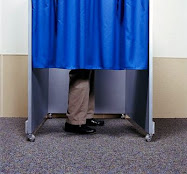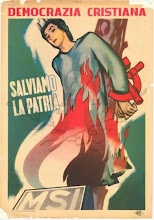History is repeating itself: during the year of the global economic crisis, the left is sinking almost everywhere in Europe. The Labors parties in Great Britain have suffered the biggest defeat since 1918. Even in Germany the SPD lost badly scoring 20.8%, a new negative record. In France, Sarkozy’s coalition overwhelmed the socialists (28% against 16.48%), even though the great winner here is the Green Party (16.28%). In Italy (the biggest turnout here) Silvio Berlusconi’s Freedom Party got 34.9 % with the Democratic Party being stuck at 25%. It is a victory, yes, but the expectations were higher.
Generally speaking, these elections clearly indicate that Europe as a whole must change its policy and somehow increase the level of involvement among Europeans. They also tell us that Europeans have a certain need for security and boundaries. Look at the results in the Netherlands, where Geert Wilders’ anti-Islamic Freedom Party scored 17%. Wilders is firmly against the entrance of Turkey into the European Union. The low turnout can also be explained in terms of a popular mistrust feeling toward politics and politicians: as the Europeans struggle to stand up against the economic downturn, they do not feel as if they are being represented or supported by their leaders.
According to Labour's deputy leader, Harriet Harman, this was "a bad defeat” for the Labor Parties. Gordon Brown will now have to explain what happened to his lawmakers during a closed door parliamentary session. In Germany, Der Spiegel called the results of the elections “catastrophic” for the SPD. In France, Sarkozy’s UMP won the 28% of the votes, while the socialists (16.48%) performed very poorly, almost as badly as in Great Britain. It has been said that the French appreciated what their country’s government did during the six months of European presidency. The big winner, though, is the Green Party: "June 7 is the D-Day of ecology politics," said former anarchist Daniel Cohn-Bendi, leader of the “eco-friendly” French party.
In Spain, Zapatero’s socialists lost the elections. The “triunfo de los popolares” (the People’s Party won 42.3 percent of the vote and 23 seats in Strasbourg) represented a “pérdida de confianza” (a loss in confidence) for Zapatero. The Spanish leader will now have to sail in troubled waters since his electorate is turning from him, while Spain is suffering from the highest unemployment rate in the Old Continent.
In Italy, Silvio Berlusconi’s party (Pdl - Popolo della Libertà) has once again won by a large majority (34.9% Vs. 25%) against the main opposition party, the Partito Democratico. Berlusconi was in fact expected to lose many votes due to gossip-related issues. The Italian voters turn-out was once again the largest in Europe (66.5 %) but, according to Renato Manheimer, this is due to the fact that our political debate focused mainly on domestic issues. Since the results were better at the April 2008 general elections, when the Pdl got 37% of the votes, Berlusconi announced that “many things will have to change inside the party”.
Surprisingly enough, Umberto Bossi’s Northern League party won 10% of the votes, and even though Bossi himself said that “we will still remain trusted allies”, this might turn into more political weight for the “Lega Nord”, to be used inside the Pdl. This happened according to a European trend: indeed, extremist and fringe parties gained popularity also in Austria, Finland, Greece, Hungary, the Netherlands and Romania.
The PD (Democratic Party) suffered another major defeat but its leader, Dario Franceschini, sees the glass half full: “We were David against Goliath. Nevertheless, even this time, Goliath didn’t win….Italy is against the general tendency in a Europe swept by a right-wing wave. The fact that the PD is the major reformist party in Europe will eventually emerge”.
Andrea Holzer (L'Occidentale)



















